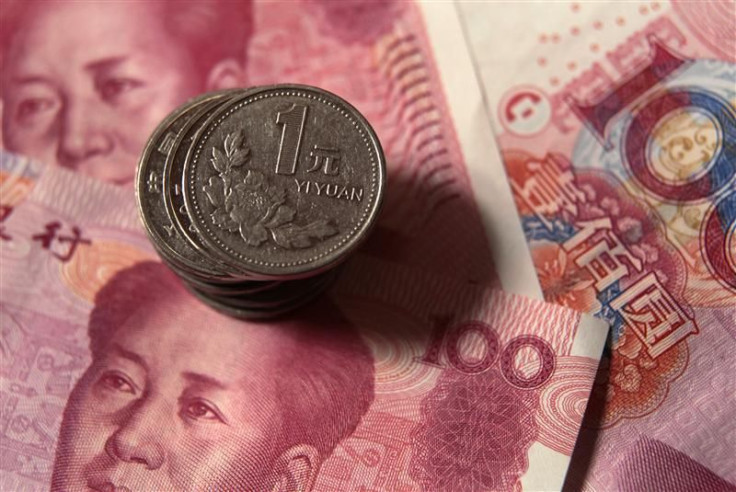China Makes Growth Guarantee Despite Grim Global Economy

(Reuters) China pledged to guarantee growth in the face of an extremely grim outlook for the global economy in 2012, as its annual policy-setting conference closed on Wednesday with a series of commitments to deliver economic stability.
Laying out a blueprint for the world's second-biggest economy in the year ahead, Beijing promised to keep monetary policy prudent and fiscal policy pro-active while ensuring stable consumer prices -- language broadly in line with previous commitments.
But it was China's view on the global economic backdrop that was a sign of the policy challenge that could lie ahead.
Looking into next year, the trend in the global economy on the whole is grim and complicated. Uncertainties are rising around a recovery in the world economy, said a statement published on the official Xinhua news agency after the end of the annual conference.
Beijing's wish to downplay those risks domestically was apparent in all the economic plans outlined, which broadly endorsed a decision by China's top leaders last week to avoid big policy changes before a critical leadership succession in 2012 that will see the nation's top two leaders retire.
Stability means to maintain basically steady macro-economic policy, relatively fast economic growth, stable consumer prices and social stability, one of several statements carried by the official Xinhua news agency said.
The yuan's value will be kept basically stable; interest rate and exchange rate reforms will continue; measures aimed at calming the property market will be maintained; exports will kept steady whilst imports boosted to balance trade.
Economists were sanguine in their initial take on the pronouncements from the single most important annual meeting in China's economic calendar.
They singled out the commitment to domestic economic stability as a sign of steady-as-she goes policies in the year ahead.
This year it's a lot less drama, said Tim Condon, an economist at ING Bank in Singapore. The statements are much less thematic than a year ago when they moved from a moderately loose to a prudent stance.
This is the case of an economy where policy does not need fixing so they are just staying the course.
The bevy of statements did not betray a clear policy bias between growth and inflation, a stance which some economists say underscores China's nagging concerns that inflation could rebound after this year's tentative victory.
Indeed, while noting the global economic malaise, Beijing conceded that China is in a tight spot itself, squeezed by both inflation and slowing economic growth.
We will fine-tune monetary policy in an appropriate and timely manner, according to the economic situation, and will also use various monetary tools to keep a reasonable growth in money and credit, one statement said.
China's economic growth has slowed down for three straight quarters and economists widely expect expansion in 2012 to be below 9 percent for the first time since 2001.
Inflation appears to be coming off the boil, having fallen from a three-year high of 6.5 percent in July to 4.2 percent in November, but stability-obsessed Beijing is wary of any policy that might revive a trend of rising prices.
FINE-TUNING
Economists said the official rhetoric suggested Beijing was only ready to fine-tune economic policies, rather than swing into an outright monetary easing mode to aid economic growth.
There is no sharp reversal of (monetary policy) and there is no across-the-board easing, said Wang Jun, an economist at CCIEE, a top government think-tank in Beijing.
People may feel a bit disappointed. There is limited room for big policy adjustments as inflation has just slowed while economic growth is not that pessimistic.
One statement said Beijing aims to make policies more targeted and flexible to keep pace with changes in the world economy, whose 2012 outlook was described as being extremely grim.
The Central Economic Work conference brings together China's top leadership, provincial government leaders, ministers, the heads of the biggest state companies as well as the generals from the People's Liberation Army.
Private-sector economists believe China has tacitly shifted to a pro-growth policy stance, despite Wednesday's statements, after the central bank cut bank reserve requirements on Dec 5.
A Reuters poll last week had a consensus view that China was primed to roll back much of the monetary tightening it had used to tame inflation over the last year and cut the ratio of deposits that banks are required to keep as reserves (RRR).
No aggressive policies were forecast to be used to stimulate the economy unless there was a sharp slowdown in GDP growth below 8 percent.
(Reporting by Zhou Xin and Kevin Yao; Editing by Nick Edwards, Ken Wills and Neil Fullick)
© Copyright Thomson Reuters 2024. All rights reserved.




















